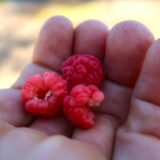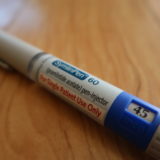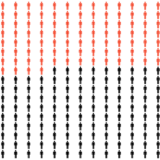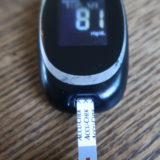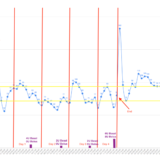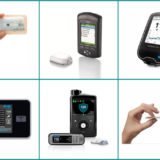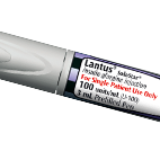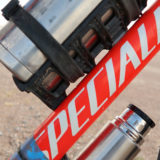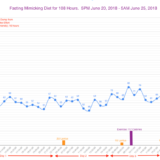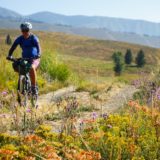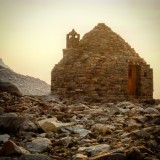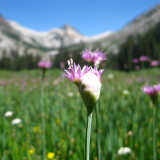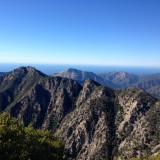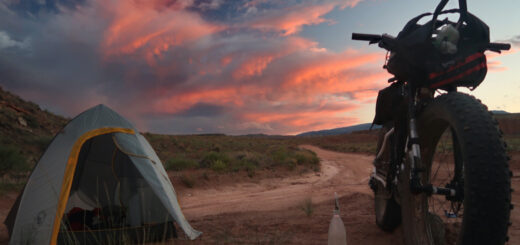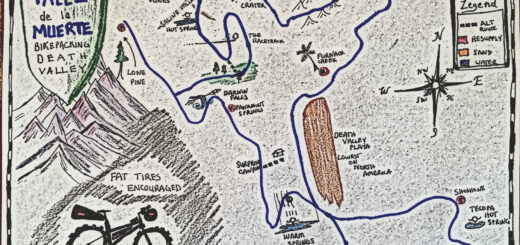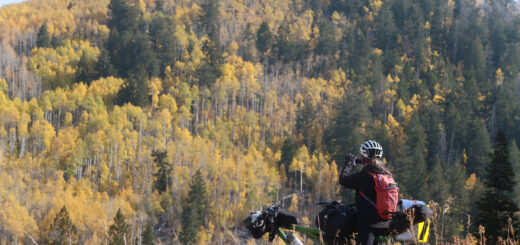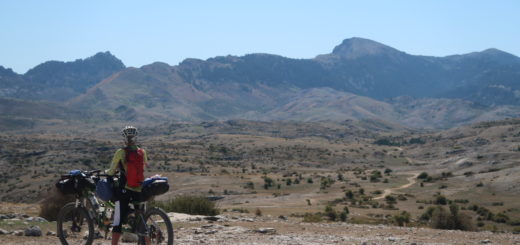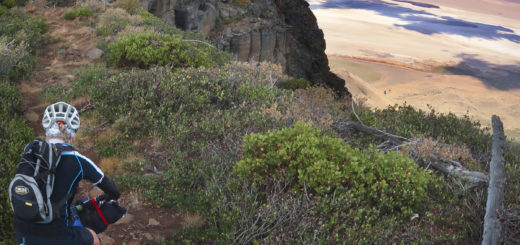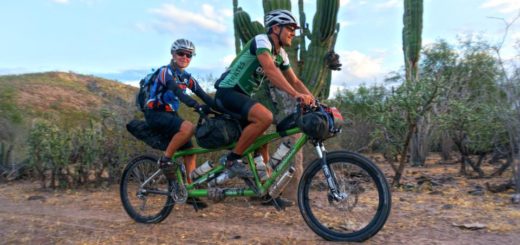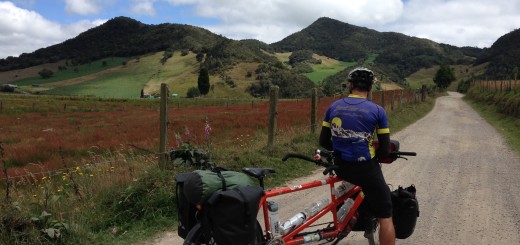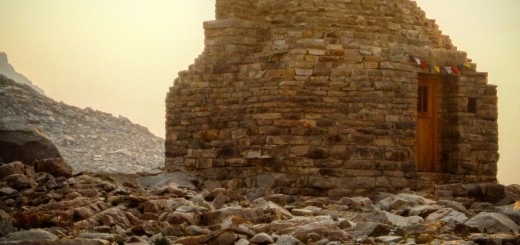01/03/2024 Bikepacking Guinea Day 148 : When Life Gives You Lemons…
My phone is handled by numerous people every day. I still use the translator for complex subjects that demand nuanced discussions or intricate vocabularies. Plus, it sometimes makes people laugh. Often, while holding my phone, people remark on its apparent value, trying to convince me that my phone is worth $1200 or $1500. I clarify that I bought it secondhand for $100, but they insist I’m wrong. It's an old iPhone SE2; it was never worth more than $300 when new. I refrain from debating much because I'm uncertain about actual prices here in Guinea.
What surprises me is when they take photos of me with THEIR phones, I’m usually staring back at a large modern looking device with a triple-lens camera, making me pretty sure their phones are fancier than mine. It leads me to ponder if I'm being judged based on my skin color; I’m white and therefore have a more expensive yet diminutive phone?
I’ve been meeting folks from Sierra Leone recently, which has been engaging because they speak good English. One Guinean/Sierra Leone guy told me that he had gone to Botswana. I asked him,
“Why did you go there?” Assuming he went for work.
“Just like you,” he exclaimed, pointing at my bike. “I like to see new places!”
I just assumed that Africans don’t travel for fun. So, as you can see, I can’t complain too much about them judging me. This pre-judgement works both ways.
*******
Finding resources has become exceptionally difficult. While you can get (largely blocked) cell phone service and credit reloads in every town, with regard to food, there are very few items to buy. I cannot fairly say that there is NO food. Every little shack has shelves stocked with mayonnaise, sardines, condensed milk, tomato paste, and juice. If anyone has any recipes using these ingredients, please send me a line.
But don’t send it on WhatsApp, Facebook, or as any type of video. That stuff is all blocked by the government here, which is adding a lot of time and battery consumption fiddling with my phone trying to get anything done online. I guess they don’t want you to know what I’m about to tell you.
In Guinea, all of the wells are sealed off on top with concrete. To get the water, they all have a foot pump mechanism. I’m always looking for “easy water,” and filtering plus UV purification takes less time than squeezing those little 400 mL bags into bottles all day. The only problem is: After checking several dozen, I’ve only seen 2 working wells since I’ve been in Guinea. Whenever I ask the locals about the well, they just shrug and say “c’est ferme,” (it’s closed; a nice way of saying “it is broken”). Today I found one that looked like it would work - even started a video… but its pump mechanism was also broken.
In the end, we see motorcycles stacked with huge jugs - strapped all over the sides and on top of the rack - bringing water from the rivers to town. People wash clothes, bodies, and cars in the river. So do I. Water, the most basic essential is hard to come by here.
If you read the aid organization’s propaganda, the people are quoted as saying, "Thank you! This borehole means so much to us. May God bless you, as he is the only one who can repay you!"
It’s the wrong solution to the right problem.
When life gives you lemons… check the receipt for the return policy!
What surprises me is when they take photos of me with THEIR phones, I’m usually staring back at a large modern looking device with a triple-lens camera, making me pretty sure their phones are fancier than mine. It leads me to ponder if I'm being judged based on my skin color; I’m white and therefore have a more expensive yet diminutive phone?
I’ve been meeting folks from Sierra Leone recently, which has been engaging because they speak good English. One Guinean/Sierra Leone guy told me that he had gone to Botswana. I asked him,
“Why did you go there?” Assuming he went for work.
“Just like you,” he exclaimed, pointing at my bike. “I like to see new places!”
I just assumed that Africans don’t travel for fun. So, as you can see, I can’t complain too much about them judging me. This pre-judgement works both ways.
*******
Finding resources has become exceptionally difficult. While you can get (largely blocked) cell phone service and credit reloads in every town, with regard to food, there are very few items to buy. I cannot fairly say that there is NO food. Every little shack has shelves stocked with mayonnaise, sardines, condensed milk, tomato paste, and juice. If anyone has any recipes using these ingredients, please send me a line.
But don’t send it on WhatsApp, Facebook, or as any type of video. That stuff is all blocked by the government here, which is adding a lot of time and battery consumption fiddling with my phone trying to get anything done online. I guess they don’t want you to know what I’m about to tell you.
In Guinea, all of the wells are sealed off on top with concrete. To get the water, they all have a foot pump mechanism. I’m always looking for “easy water,” and filtering plus UV purification takes less time than squeezing those little 400 mL bags into bottles all day. The only problem is: After checking several dozen, I’ve only seen 2 working wells since I’ve been in Guinea. Whenever I ask the locals about the well, they just shrug and say “c’est ferme,” (it’s closed; a nice way of saying “it is broken”). Today I found one that looked like it would work - even started a video… but its pump mechanism was also broken.
In the end, we see motorcycles stacked with huge jugs - strapped all over the sides and on top of the rack - bringing water from the rivers to town. People wash clothes, bodies, and cars in the river. So do I. Water, the most basic essential is hard to come by here.
If you read the aid organization’s propaganda, the people are quoted as saying, "Thank you! This borehole means so much to us. May God bless you, as he is the only one who can repay you!"
It’s the wrong solution to the right problem.
When life gives you lemons… check the receipt for the return policy!
Photos:

Remember “slash and burn agriculture” from school days? They still do it here. Good opportunity to see monkeys running from the flames.
—

A typical kitchen in case you would like to order some spice with your rice.
—

Todays objective: God’s bridge. Yup, another one!
—

I thought this well might be working. But then I discovered it was not.
—

Red donate button on top in case you believe what they say.

K.I.S.S. Keep it simple, stupid. I’m just guessing, but I think the engineering designed sealed wells to keep the water cleaner? It’s just not a realistic solution for Africa, though. You remember my post about the guys with the bikes - sure you can get them a bike, but as soon as one thing breaks, there is no realistic way to repair it. I’ve seen over 50 of these wells, and only 2 working. People walking to the river or trucking water just like they did before the well. It’s insane. A bucket on a rope works fine in Senegal and Mauritania. Why not here?
—

I wanted to keep camping, so I asked a guy with electricity if I could pay him to plug in for an hour. He said no problem. Then I set about finding food. This guy had liver pieces on a stick for sale. I ordered some “bien chaud!” You can see the blood bucket on the left.
—




Camped next to a cell tower again. It’s getting to be more challenging to do my regular stuff here. Three people walked by, though. One guy said something was going to happen here at 8:20. Hopefully he meant tomorrow. I managed to work some VPN wizardry to buy a Sierra Leone visa online today. The only reason I’m going there is so I can buy an Ivory Coast visa. It’s an extra 500 miles in humidity, so I’m not excited about that…
**Now the night watchman is here at the cell tower listening to music on his phone. At least I have a buddy, I guess. He said, “Welcome.”
—

Here you can see a few things from my spending log. First, you can see how many little transactions are generated by going from stall to stall in order to put together calories. Second, you can see how insanely cheap food is here. Finally, you can see how outrageously expensive canned food is (apart from one brands of sardines). Yes, I paid $25 for a can of tuna, bag of dates, and a can of beans. The tuna had some veggies in there, which is why I got it. Dates have lots of fiber, and are actually quite gentle on blood sugars compared to bread. Beans have fiber. It’s hard to get fiber from bread, bananas and oranges, which is why I look for gas stations (only occasionally do they have food).
—
Strava Comments:
Nancy P.
Liver of what 🤔 that looked good 😊
terri W.
Nancy Prier 🧐 I was wondering that too. 😂Sometimes better not to know?
Paula G.
Good luck on getting some recipes with those ingredients. They must be used to working just for water. We should all be in as good of shape as they are for having to work for something so simple.
Sօʀƈɛʀɛʀ 🅅.
Slash and burn, run for the green woods, drill baby drill, cap and trade, and make lemonade!
Braden L.
I’d be starving to death, Sardines daily, ouch!
Janet W.
No one should have to work so hard for clean drinking water. It’s not fair, but it is worth the hard effort, as water is the #1 necessity for life. I wonder why so@many wells are broken. A drought?
Brian L.
Janet Wagner - they are broken because they use a mechanical pump. That doesn’t last forever, and once it breaks, with no one from outside to help, they are screwed. Kind of like owning a John Deere tractor
Stan H.
I wonder if the working wells are in the larger towns where more people use them, and the rural wells get neglected? Not that rural people need water any less….
Brian L.
Stan Hooper - Almost no one has water from a well. Wells are abundant, but 95% are broken. Most of the traffic I see is transportation of water from rivers in jugs or fuel in jugs. I know this is difficult to wrap one’s mind around. I feel like I’m not doing a very good job of explaining just how lacking things are here.
Ann L.
Brian Lucido I think you are doing a good job of explaining how things are lacking there. Sounds like a very rough place to live.
Mark G.
The well dilemma is crazy. I see they repaired a whole bunch in the article so I'm guessing the IRIC or whoever put them in, knows there is a problem. The spreadsheet is super interesting.
J&K S.
Your comment about inoperative water wells is important. Every well eventually needs maintenance. The water charity that I support embeds a metal plaque in the cement around the base of the well. On it, is the date and identifying number of the well, and the phone number to call for maintenance. They have crews in each country that do nothing but maintenance. (I found a picture from a well-drilling trip from 2010, but I don't think I can post a picture in the comments section.)
Brian L.
J&K Shaw - it seems like each country has its own style of well; as soon as you cross a border, the well style changes completely. Senegal wells were the best; and it felt like the local people controlled them - I always depended on a person to be there in order to have a bucket and rope. Guinea wells are 95% inoperable because they are completely sealed on top. Sierra Leone is very similar to Guinea, with one exception: a trap door on top. Also, the pump mechanisms look more robust. As a result of the more robust design, a whopping 35% of the pumps are working. The other 65% are broken… but because of the trap door - even though it is small… people can get water. I have already visited 3 and people stopped me from trying to pump, and filled my bottles from a nearby bucket. Since they were doing the work for me, I peeked in the trap door, saw water and what was going on. I give the kids a little too. I sometimes see people using ropes. Water is so important in this heat that every well always is being used, so even from a distance, you can determine the status. I am not a well expert, and there is probably a reason why they are sealed, but at least Sierra Leone, they have the trap doors. Also, if you think the photo has relevance, you can send it to me and I will post it with a caption explaining what it is and where the photo came from.
Ride Stats:
| Elapsed Time | Moving Time | Distance | Average Speed | Max Speed | Elevation Gain | Calories Burned |
|---|---|---|---|---|---|---|
|
10:04:48
hours
|
05:41:33
hours
|
89.89
km
|
15.79
km/h
|
52.90
km/h
|
1,480.00
meters
|
2,694
kcal
|








